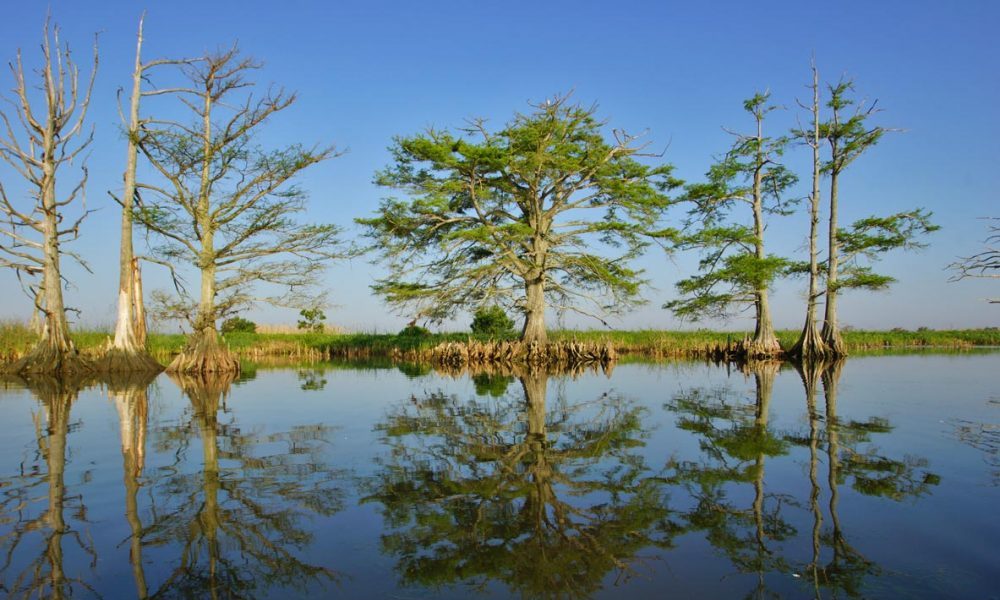Friday, July 26, the Alabama Historical Commission (AHC), and the State Historic Preservation Office, filed an Admiralty Claim in the United States District Court for the Southern District of Alabama in Mobile as part of an ongoing and long-term protection and preservation plan for the Clotilda, the last-known slave ship in the United States.
The AHC is charged with protecting, preserving and interpreting Alabama’s historic places. This charge also includes abandoned shipwrecks, or the remains of those ships, and all underwater archeological artifacts embedded in or on lands belonging to the State of Alabama. This mandate is set forth in the Abandoned Shipwrecks Act and the Alabama Underwater Cultural Resources Act.
Mobile area attorney John Kavanaugh is representing the state and has been deputized by Alabama Attorney General Steve Marshall (R).
“When significant historical shipwrecks are located, it is common practice to seek the federal court’s assistance to preserve and protect the vessel,” said Kavanaugh, attorney for AHC. “The Federal Court has the authority to issue all necessary and appropriate orders so that work on the site and further preservation efforts can continue without delay.”
In June, AHC contracted with Burr and Foreman, a Mobile-based law firm specializing in maritime law, for assistance in securing every available legal tool to aid in the protection and preservation of the Clotilda. Kavanaugh is a partner with Burr and Foreman.
The Historical Commission explained that pursing an Admiralty Claim is an appropriate course of action and protocol for abandoned wrecks embedded in state waters. AHC is following the lead of other states with similarly high-profile artifacts. For example, a Florida Federal Court adjudicated an Admiralty Claim involving the Atocha and other vessels in a fleet of Spanish galleons, which sank in the Florida Keys during a hurricane in 1622. Likewise, the Titanic, which is located in international waters, benefitted from the protections afforded by an Admiralty Claim.
“The careful considerations for the protection, preservation, and interpretation of the Clotilda have been entirely methodical and strategic,” said Lisa D. Jones, Executive Director of the Alabama Historical Commission. “We are charged with ensuring this tremendously important archaeological find is preserved and protected for Africatown and our nation. It carries a story and an obligation to meet every opportunity to plan for its safeguarding. AHC is laying the groundwork for ongoing efforts to not only ensure the Clotilda’s immediate assessment, but to also establish pathways for its longevity.”
This year is the 400th anniversary of slavery’s arrival in this country. The first ship of African slaves arrived in Jamestown, Virginia in 1619, a year before the Pilgrims made their arrival. By the early 19th century what to do with the growing number of African Americans in bondage was a growing concern,
The international slave trade was outlawed by Great Britain in 1807. The U.S. followed and Congress actually banned the importation of slaves in 1808 while Thomas Jefferson was still President. The belief was then that with no new influx of slaves the practice of slavery would slowly diminish in economic importance over the coming decades and individual family farms would take precedence moving forward as America moved westwards and deeper into the continent. This was eleven years before Alabama was even a state.
The Tenth Congress had no grasp of how much prime cotton growing land the new nation was about to unleash as the nation moved westwards into West Georgia, Alabama, Tennessee, Mississippi, Arkansas, and Louisiana and displacing most of the Native Americans that lived there. They also could not have known that in the coming decades Florida and Texas would be added or that the invention of the railroad and the steam ship would make exporting cotton from those remote new territories to textile mills in Great Britain a commercial reality. The demand for slaves in the South was growing not decreasing as most had thought in 1808.
Unscrupulous ship owners began the process of smuggling slaves from Africa into the country even though it was against the law to do so. The Clotilda was one of the last of those outlaw slave ships.
The Clotilda illegally transported 110 people from Benin, Africa to Mobile, Alabama in 1860, 52 years after that had become illegal in the United States.
What they were doing would be called human trafficking today and was very illegal even then. Co-conspirators, Timothy Meaher and Captain William Foster attempted to evade authorities and destroy evidence of their criminal voyage by sinking, burning, and abandoning the vessel and then dividing the Africans among their captors, where they remained in slavery until the end of the Civil War.
A small band of the Clotilda passengers reunited post-war with the hopes of returning to Africa. When that dream was not realized, the survivors and their descendants established a new home for themselves in the Plateau area of Mobile – a community which is now known today as Africatown.
“Early in our efforts we realized the tremendous significance and potential of this find and began planning for how we would discharge our responsibilities as its public stewards, including this important legal action.” Major General (Ret.) Walter Givhan, Chair of the Alabama Historical Commission.
“By preserving the Clotilda, Alabama has the opportunity to preserve a piece of history. It is a prime example of an artifact that deserves our respect and remembrance,” said Governor Kay Ivey. “The Clotilda is very much a part of the story of the descendants and residents of Africatown, making it a significant part of the rich history of our entire state. Protecting this resource is imperative, and I look forward to Alabama taking on this important responsibility.”
Congressman Bradley Byrne (R-Montrose) has supported the Alabama Historical Commission and the search over the last two years.
“Preserving the Clotilda wreckage is of critical cultural importance to the people of Africatown and indeed our entire nation,” said Byrne. “I encourage the federal government to take the appropriate and necessary steps to protect this item of such concrete significance to the American story.”
“The discovery of the Clotilda was a significant moment not just for Alabama and our nation, but more importantly for the descendants of the 110 enslaved people who were smuggled in it to our shores,” U.S. Senator Doug Jones (D-Alabama) said. “Many of their descendants live in Africatown today and have been leaders in the effort to protect this important piece of history. It is vital that we take every possible step to preserve the Clotilda, so that future generations can fully appreciate its role in our nation’s past and present.”
State Senator Figures represents the Africatown community and has supported the search for the Clotilda for many years.
“I applaud the AHC under the leadership of Lisa Jones and Clara Nobles, for ensuring that all legal bases are covered in connection with the Clotilda,” said Senator Figures. “I’m excited to continue working with them and all of the descendants and residents of Africatown as we move forward in this project.”
Through the Federal Court’s maritime jurisdiction, a key benefit of pursuing an Admiralty Claim involves the retrieval of any artifacts that have been taken from the Clotilda. This authority is a strategic effort to also prevent against future attempts of “salvagers” who may defame the ship, or its artifacts, by taking from it.
Once an Admiralty Claim is set forth, any invested parties who may claim ownership are asked to come forward immediately. A public notice will be published for three weeks. This then leads to an open forum through the court so that all vested entities have a voice and can be heard in an orderly fashion. The court’s proceedings are a matter of public record so, all interested parties have access and can see what’s being done. The result is to ensure that the Clotilda remains a publicly-owned resource of the State of Alabama.
\
“It’s critical from the community perspective that the Alabama Historical Commission takes this action to help preserve and retain the momentous legacy to the Africatown community,” said Anderson Flen, President of the Mobile County Training School Alumni Association. “We are in full support of AHC working with Africatown in taking these legal actions.”
The Alabama Historical Commission is working in concert with the Africatown community, the National Geographic Society, Black Heritage Council, Smithsonian National Museum of African American History & Culture (NMAAHC), the Slave Wrecks Project (SWP), SEARCH, Inc., Diving with a Purpose (DWP), Alabama Department of Conservation and Natural Resources, the National Park Service (NPS), and Mobile County.
The Clotilda was reportedly dynamited in the 1940s, which added additional complexities for assessing the ship’s integrity. Archaeological evidence supports these claims. In all, the ship is in a very fragile state, which has heightened precautions and the meticulous care for proceeding with all archaeological endeavors.
“The Alabama Historical Commission and SEARCH, Inc. did stellar work and rigorous research in challenging and dangerous conditions,” said Dave Conlin, a founding member of SWP and head of the National Park Service’s Submerged Resources Center.
“This kind of archaeological work is painstaking and difficult under any circumstances, but the physical conditions of this particular site – zero visibility, high currents and potential entanglements – made this an especially difficult shipwreck to work on.” Conlin said.
Conlin was also was part of the 2018 Clotilda search team and most recently served as a member of the peer review team that confirmed the identity of the Clotilda.
In addition to this year being the 4ooth Anniversary of the arrival of Africans in America, this is also the 200th anniversary of Alabama being a state. The state is celebrating its bicentennial all this year.



















































